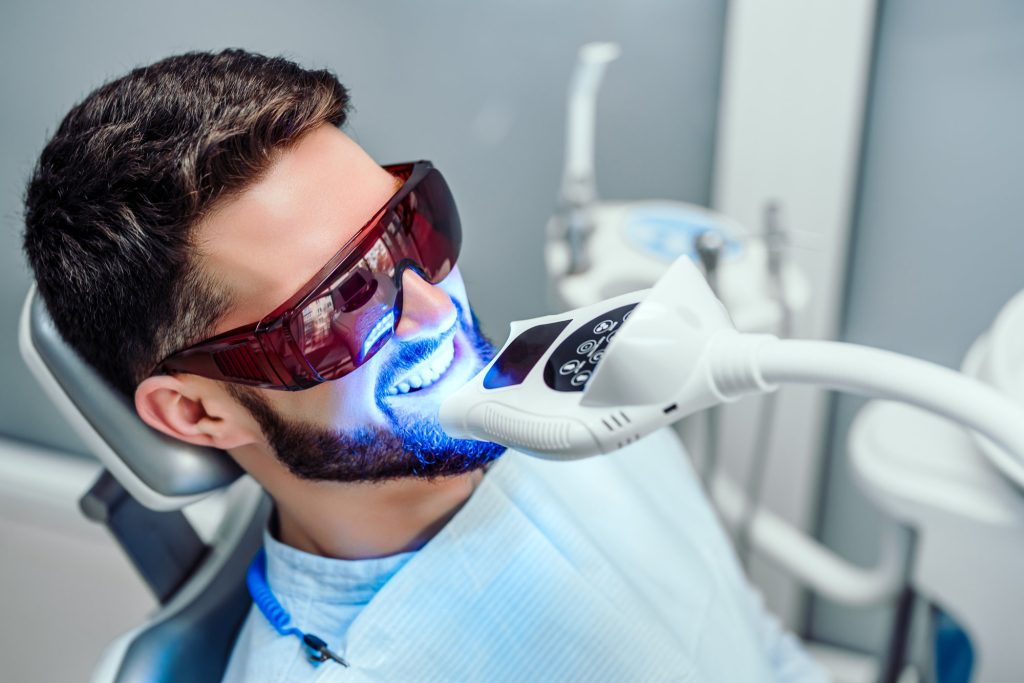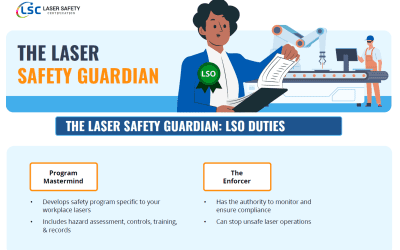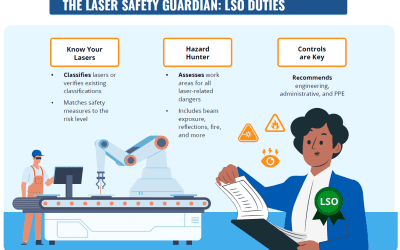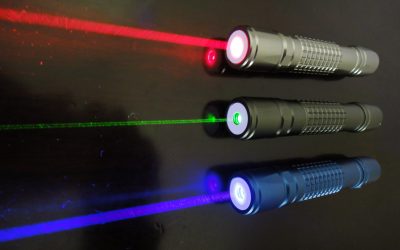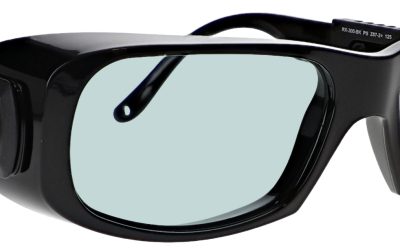The Importance of a Medical Laser Safety Officer
Lasers are very important medical devices. They are used to treat and diagnose diseases and symptoms and contribute health and wellness benefits. Health Care Laser Systems (HCLS) are used in hospitals and surgery centers, chiropractic, dental and veterinarian offices as well as for physical therapy and med spa treatments.
Due to the ever-expanding use of HCLS, having a designated medical professional be the onsite medical laser safety officer is increasingly important. He or she is responsible for proper training of personnel in the operation of HCLS along with the crucial aspect of laser safety.
Laser Hazard Control Mitigation Strategies
Laser safety focuses on establishing a laser safety program at the medical facility to ensure that all employees are properly trained. This includes establishing laser safety control measures, including administrative, procedural and engineering controls that address the following issues:
- Hazard evaluation from laser radiation
- Hospital and operating room specific challenges
- Mobile laser system location variations
These laser safety control measures are dependent on the laser hazard classification, which is based on the laser radiation output level and its capability of damaging tissue and eyes. Other non-beam hazards include chemical expulsion, electrical hazards and thermal radiation, all of which need to be addressed.
The Medical Laser Safety Officer (MLSO)
The appointed medical laser safety officer has the ongoing responsibility for the laser safety program, including training for new employees. Certain tasks may be delegated, such as evaluation, maintenance and service of the HCLS so long as those individuals are properly trained to do so. It is highly recommended that at least one deputy medical laser safety officer, depending on the size of the facility, be appointed so there is always a properly trained person on hand.
In addition to properly labeling the laser control area with signs, depending on the laser classification, proper personal protective equipment (PPE) must be used by both medical professionals and their patients. Additionally, all health care personnel who may come into proximity to the HCLS need to be trained in laser safety and this program must be documented by the medical laser safety officer in accordance with state and federal regulations.
How we can help
Here at Laser Safety Certification our Healthcare Laser Safety Officer course focuses on these topics and other technical information. Our online HLSO course along with our Healthcare Laser Safety Kit gives the appointed medical laser safety officer the tools needed to establish safety protocols and meet state and federal requirements. Please take a look at our Healthcare Laser Safety Bundle.
